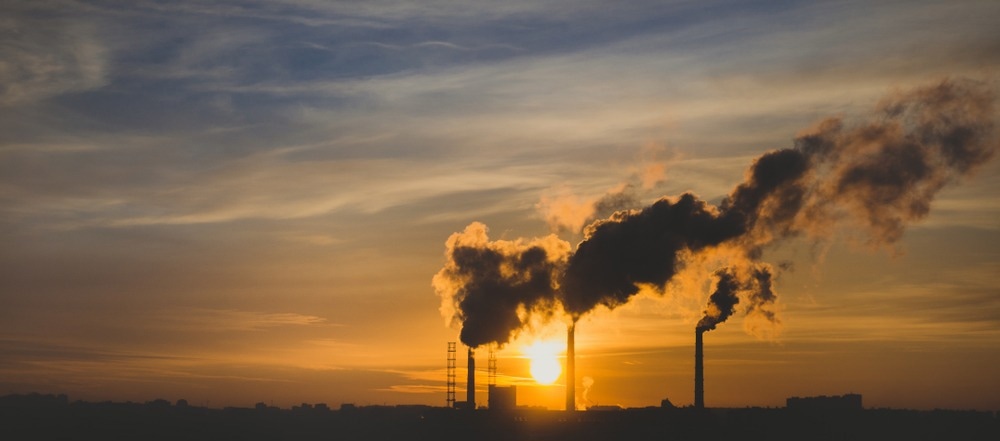A new study carried out by Simon Fraser University researchers emphasizes the need for immediate measures to limit methane emissions if global climate change goals are to be met.

Image Credit: darksoul72/Shutterstock.com
The pledge to keep average global temperature increases well below 2 °C above pre-industrial levels and to pursue efforts to keep global warming to 1.5 °C above pre-industrial levels is a key component of the 2015 Paris Agreement, a binding international treaty on climate change.
This necessitates reaching net-zero CO2 emissions by or around 2050, as well as significant reductions in methane and other emissions.
The research, which was published in Nature’s Communications Earth & Environment, hypothesizes that if global-scale methane mitigation efforts are started before 2030, global warming levels, as compared to the pre-industrial period, could be curtailed below 2 °C.
Even if net-zero carbon dioxide (CO2) emissions were achieved, delaying methane mitigation until 2040 or later would increase the risk of global warming levels exceeding 2 °C above pre-industrial levels.
Methane ranks second only to CO2 in terms of its contribution to global temperature rises over the last two centuries. Over 40 years, anthropogenic activities like fossil fuel extraction, livestock production, agriculture, and waste have contributed to more than 60% of global methane emissions.
We emphasize that actions associated with the Global Methane Pledge should not be delayed, because every year of delayed methane mitigation implies further global warming.
Kirsten Zickfeld, Distinguished Professor and Director, Climate Science, Climate Research Lab, Simon Fraser University
“While policymakers now accept the need for urgent methane mitigation, it is necessary to emphasize the importance of immediate mitigation to comply with the temperature goal in the Paris Agreement—particularly taking into account potential Earth system feedbacks,” notes Claude-Michel Nzotungicimpaye, former Ph.D. Student at SFU, Researcher on Zickfeld’s team, and the study’s lead author.
Zickfeld’s team highlighted the impact of immediate versus delayed methane mitigation to meet the 2 °C threshold in their study, which employs an Earth system model with a coupled methane cycle.
They investigated the role of feedback in the carbon and methane cycles in determining the timing of methane mitigation to meet the Paris Agreement climate goal, and also the long-term climate impacts of slowing or failing to mitigate methane in the present century, which has never been studied before.
According to the group’s results, every 10-year delay in methane mitigation results in an additional 0.1 °C peak global warming temperature.
To increase the likelihood of keeping the increase in average global temperatures to well below 2 °C above pre-industrial levels, their findings highlight the need for immediate cuts in anthropogenic methane emissions throughout the world, along with strict CO2 mitigation.
Journal Reference:
Nzotungicimpaye, C.-M., et al. (2023). Delaying methane mitigation increases the risk of breaching the 2 °C warming limit. Communications Earth & Environment. doi.org/10.1038/s43247-023-00898-z.